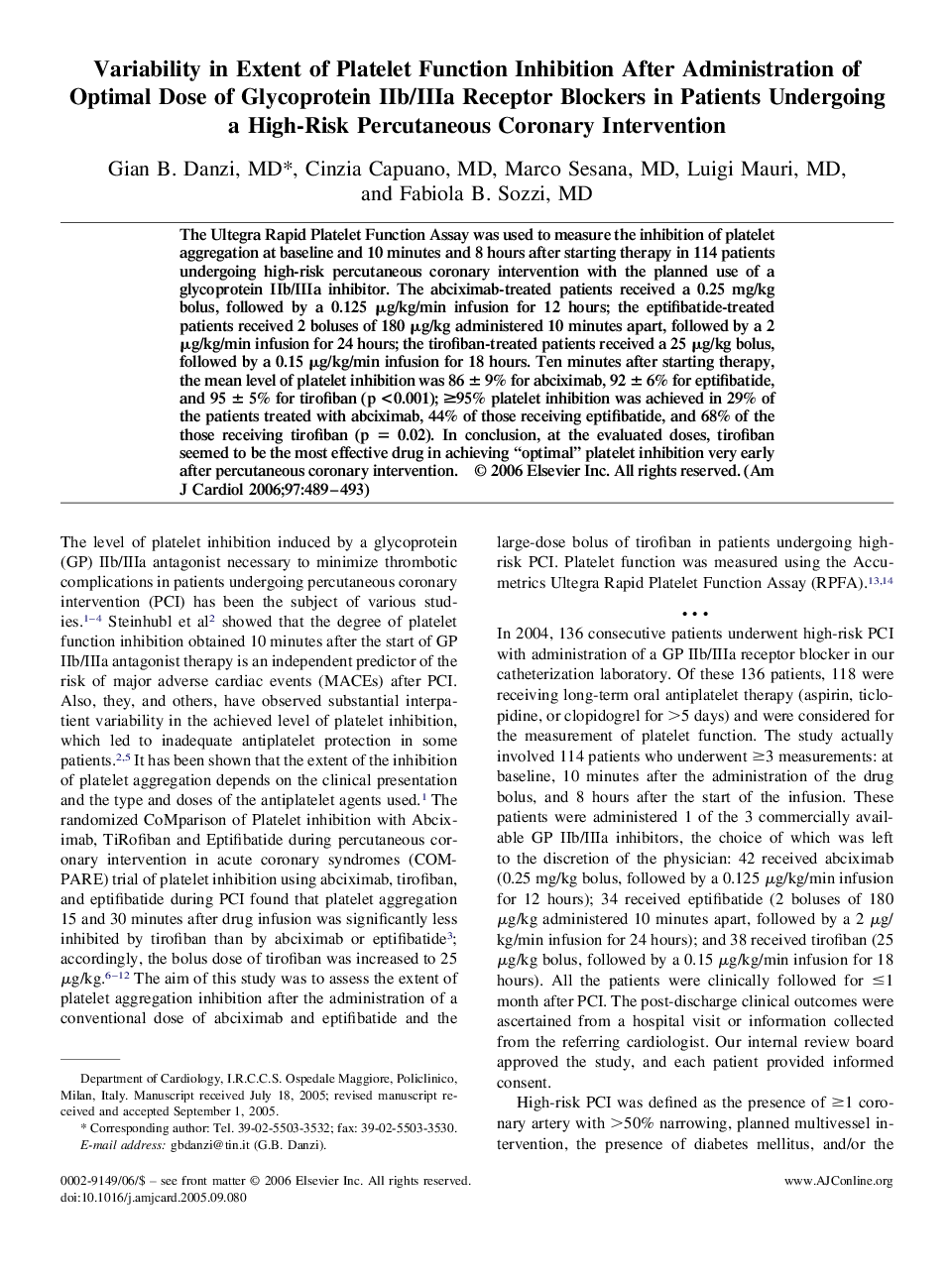| Article ID | Journal | Published Year | Pages | File Type |
|---|---|---|---|---|
| 2862286 | The American Journal of Cardiology | 2006 | 5 Pages |
The Ultegra Rapid Platelet Function Assay was used to measure the inhibition of platelet aggregation at baseline and 10 minutes and 8 hours after starting therapy in 114 patients undergoing high-risk percutaneous coronary intervention with the planned use of a glycoprotein IIb/IIIa inhibitor. The abciximab-treated patients received a 0.25 mg/kg bolus, followed by a 0.125 μg/kg/min infusion for 12 hours; the eptifibatide-treated patients received 2 boluses of 180 μg/kg administered 10 minutes apart, followed by a 2 μg/kg/min infusion for 24 hours; the tirofiban-treated patients received a 25 μg/kg bolus, followed by a 0.15 μg/kg/min infusion for 18 hours. Ten minutes after starting therapy, the mean level of platelet inhibition was 86 ± 9% for abciximab, 92 ± 6% for eptifibatide, and 95 ± 5% for tirofiban (p <0.001); ≥95% platelet inhibition was achieved in 29% of the patients treated with abciximab, 44% of those receiving eptifibatide, and 68% of the those receiving tirofiban (p = 0.02). In conclusion, at the evaluated doses, tirofiban seemed to be the most effective drug in achieving “optimal” platelet inhibition very early after percutaneous coronary intervention.
